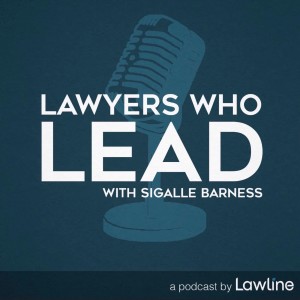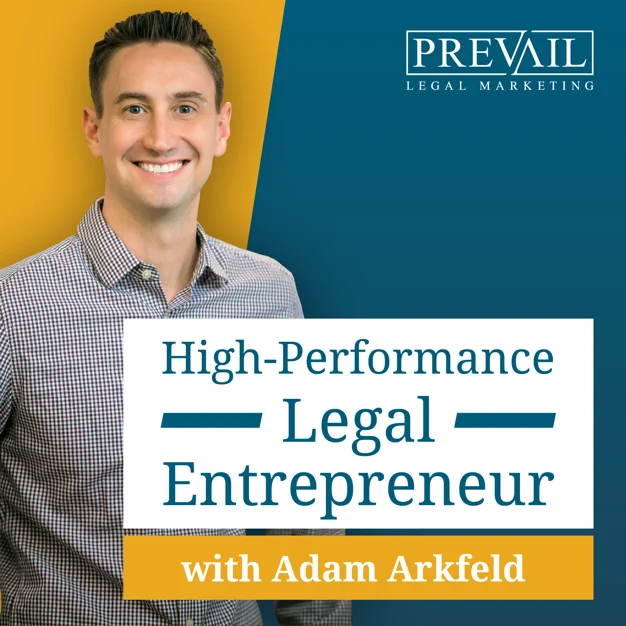FAQ
Everything you need to know about the mitigation video production process.
Law Like You’ve Never Seen
Great question. These are not for every case. Indeed, if they are done too often, or with poor planning or poor quality, their overall effectiveness is bound to diminish. Typically, these are done in cases where there is an extraordinary sentencing story. Although, in some instances, a sentencing video can breathe new life into a seemingly ordinary story, one the judge has heard a hundred times before. Sometimes just seeing and connecting with a client or his “people” serves to humanize a defendant, which moves them closer to their sentencing goals.
Mitigation videos cost about the same as it would take to hire an expert in any case. It is a hybrid of legal and production work, with Passon leading a highly trained and professional team. From start to finish, a sentencing video will typically cost anywhere between $5000 and $25,000 depending on a number of factors, including the complexity of the case/story, travel requirements, number of witness interviews, and time constraints.
It varies from case to case. The range is 3-30 minutes, but as a general rule—it must be no greater than absolutely necessary to tell a compelling true story. Ten minutes or less can often suffice.
In the context of criminal sentencings, most definitely! In most jurisdictions, the rules of evidence do not apply, the defense has wide latitude, and the government has no sound legal basis to object. The typical standard is “minimal indicia of reliability” and “opportunity to rebut”. Disclosure in advance of sentencing cures any potential objection, although prosecutors and judges rarely object to this kind of mitigation. In death penalty cases, the videos are allowed, but sometimes with greater constraints on content. Civil law practitioners routinely introduce these types of “day in the life” videos in their personal injury cases.
No. I am a lawyer, but not the lawyer. I am a licensed practicing attorney with over twenty years criminal defense experience. I am brought on board to work closely with the existing team to find and tell the client’s story in the most credible and compelling way and integrate it into the greater legal landscape of the case. Because of my background in criminal defense, I am well suited to suggest other avenues of investigation, expert witnesses, and legal arguments that may compliment the video or the overall sentencing presentation. I am typically either retained by the existing legal team or the client’s family or supporters, but your lead counsel remains “captain of the ship.”
Yes. A sentencing video is, first and foremost, a tool of legal advocacy. They are carefully crafted, true stories, specifically designed to move the needle in a court of law. Consequently, these projects should be directed by an experienced legal professional who has the overall experience to know what works and what doesn’t. Even the most competent video production companies come to this fight with one hand tied behind their back. They may be talented and earnest, but they will come to you with fundamental limitations in their understanding of the complexities of courtroom persuasion and advocacy. Moreover, if the lawyer who hires the filmmaker is also unfamiliar with the production process, it can result in the blind leading the blind. There are pitfalls in every aspect of the production process of which non-lawyers cannot be expected to anticipate.
Doug Passon Law is a law firm and a video production company all rolled into one. What sets us apart from anyone else doing this work is that every case is managed by Passon, a lawyer with over two decades in the litigation trenches. He is internationally recognized as a pioneer in the field of mitigation videos. He writes and teaches extensively on this subject and sentencing advocacy in general. When it comes to mitigation videos and criminal sentencings, he has seen and done it all. Passon is also an accomplished filmmaker, whose non-legal documentaries have played in film festivals across North America and beyond. He employs a team of talented industry professionals to assist with production work.
No matter who is working on your movie, Passon will personally oversee the production process to make sure the movie is exactly what, where and when it needs to be. Passon not only oversees the production, he works closely with the legal team to ensure that the movie is properly integrated into the overall case presentation.
That decision ultimately rests with the lead lawyer/legal team. However, because the interview is a careful blend of law and story, Passon is well suited to conduct the interviews. Passon works with the rest of the team to craft a set of questions and topics will draw out the best and most relevant material.
Yes. We will offer the necessary direction to ensure your project is exactly what it needs to be. This is particularly useful if the attorneys have little experience with mitigation videos. Although video production companies can do great work, they do not have the legal background and experience necessary to know what will be most persuasive in court and what fire the content of the video may draw from the “other side”.
Yes. But keep in mind, this is a “cart before the horse” approach. The preparation done for the video determines the look, sound, and feel of the interview content. The interviews may or may not come to us in a form (technical or substantive) that we can use.
Yes. Passon presents seminars around the country. Moreover, he routinely gives in-house training (typically at public defender offices). He has created a multi-day, hands-on training, designed to give lawyers and staff the confidence to begin making their own videos. For the cost of approximately one video, your office can learn the skills and equip itself with the proper tools to bring the whole process in-house.
It depends. Federal public defenders are fully aware of the success mitigation videos are having all over the country, and many offices are equipped for these productions (I know, because I trained them!). Some state/county defenders are also able to make videos. Because this technique is somewhat new, not all defense lawyers know about it or understand its power. If your defender wants more information, have them call or visit the website!
Public defender agencies, especially Federal Public Defenders often have budgets for expert services, mitigation specialists, etc. For appointed counsel who must request funding directly from the court, it is more difficult, but not impossible. You will need to include substantial detail in your request as to why you need this in your case and why traditional methods of advocacy will not suffice.We have a draft motion for funding/expert request you can use as a sample. Also, CJA lawyers can spend up to $800 in a case without prior approval. Our firm offers options for more limited assistance that do not exceed the cap, including “Video Sentencing Letters”. Lastly, if you endeavor to “do it yourself” you can hire our firm on a limited basis to consult. We offer reduced rates for public agencies.
Absolutely. You have a constitutional right to present virtually any evidence in mitigation at sentencing. Most states have no rules about what a defendant can present at sentencing. If you have family members or others who are willing to step up and lend an extra hand in your case, by all means do it. I was a public defender for many years. I know from my own experience that public defenders have your interests at heart and work hard to do the absolute best they can with the resources are available. Most will almost surely welcome the extra support.
Yes. That is why you need to choose your team carefully. There are other companies that do this work. While many are extremely proficient on the film production side, they have little practical perspective about the legal process and what moves the needle in court.. Doug Passon Law is a one-of-a-kind law firm and production company that exists in the essential space where law and visual storytelling intersect. Passon has over twenty years of experience representing criminal defendants in state and federal court. He has worked with lawyers, investigators and paralegals producing these videos for over a dozen years. He knows what works and what doesn’t.
If it works for the story, then yes! All movies have music. However, you have to experiment and decide on a case by case basis whether it serves the story or is feels too shmaltzy or heavy-handed. Also, knowing your audience is key. For some judges who are not yet familiar with mitigation videos, music may be off-putting.
Yes. Many facilities will accommodate a lawyer’s request to film a client. If you run into resistance, there are options. The judge has the power to order a prison/jail to allow filming, on motion of the defense. Doug Passon Law will provide you with a sample motion. As a last resort, an audio recording of your client can be obtained either with a laptop or via a recorded telephone interview. This is yet another benefit of having an attorney/filmmaker on the case. As a lawyer, Passon has access that non-lawyers do not.
Yes, his communications with your client should be protected by the attorney-client privilege and/or work product doctrines.
No, many civil lawyers have been using video for years. They are typically called “day in the life videos” and are useful for proving damages in personal injury litigation. The use of these videos is limited only by your imagination, common sense, and of course, the rules of evidence.
No. There are any number of ways to utilize videos in cases, such as in plea negotiations, mediations, bail hearings, settlement conferences, clemency hearings, and public relations.
As soon as possible. Every good criminal defense lawyer works for the win, but knows at the end of the day odds are there will be a sentencing. That means mitigation work must start near the beginning of the case. Moreover, a good video can be a tool for plea negotiations, to convince the government to give a plea that puts you in a better sentencing position before you even see the judge.
No. The mitigation video is not designed to be a “kitchen sink” approach to sentencing. It typically focuses on one, powerful and persuasive story about the case or the client. A good lawyer doesn’t put all the eggs in one basket, and takes a holistic approach. Think of the video as the exclamation point at the end of a long sentence.
It depends. Do you have a judge who you feel confident will view the video on their own and give it due consideration? If so, you want them to have this a week or two before sentencing. Are you worried the judge won’t bother to watch? In that case, consider playing it in court at sentencing. This decision is limited only by local rules and strategic concerns.
Typically, the video is made available in two ways: an online link, and a hard copy (preferably thumb drive). Having an online link allows the attorney to cite to the video in their written pleadings. However, many judges will not access streaming video and prefer a hard copy. It is important to communicate with the court to get input on the preferred format and to follow up to make sure it is viewable.
The best course of action is to give the prosecution or opposing counsel the video well in advance of sentencing. That way they cannot claim unfair surprise or that they were not afforded an opportunity to rebut the video.
Please know that any lawyer that guarantees a successful outcome is not being straight with you. That said, I know from experience that mitigation videos work. In some cases, we know from statements by judges or opposing counsel that the video was integral to the success. In others, we can infer from the circumstances. We don’t always get everything we ask for, but in the majority of cases, we will beat the existing guidelines, the recommendations of opposing parties, or both.
Typically, no. Most states do not have any rules limiting evidence that can be put forth at sentencing.
Possibly. We have yet to have a prosecutor in a standard criminal sentencing request raw footage. In death penalty or civil cases, there usually court/discovery rules that require disclosure of raw footage. I always proceed under the assumption that the disclosure of raw footage is possible. This is one of the many things that distinguishes Passon from a non-legal production company. As a twenty-plus year litigator and the leading expert in mitigation videos, he can see around most every corner and steer clear of the many potential pitfalls of the production process.
Yes. Passon routinely travels out of state (or out of the country) to conduct witness interviews. If time or budget limits the ability to travel, Passon can conduct interviews remotely via Skype or something similar. While remotely-filmed videos are less preferable, in the right hands they can be equally effective.
Subscribe to the Newsletter
Receive the latest articles, videos, blog posts, speaking engagements, on-demand
CLE offerings and other goodies we know will be of value to you.
We will NEVER sell or give away your email address!
Thanks for subscribing! Please check your email for further instructions.















